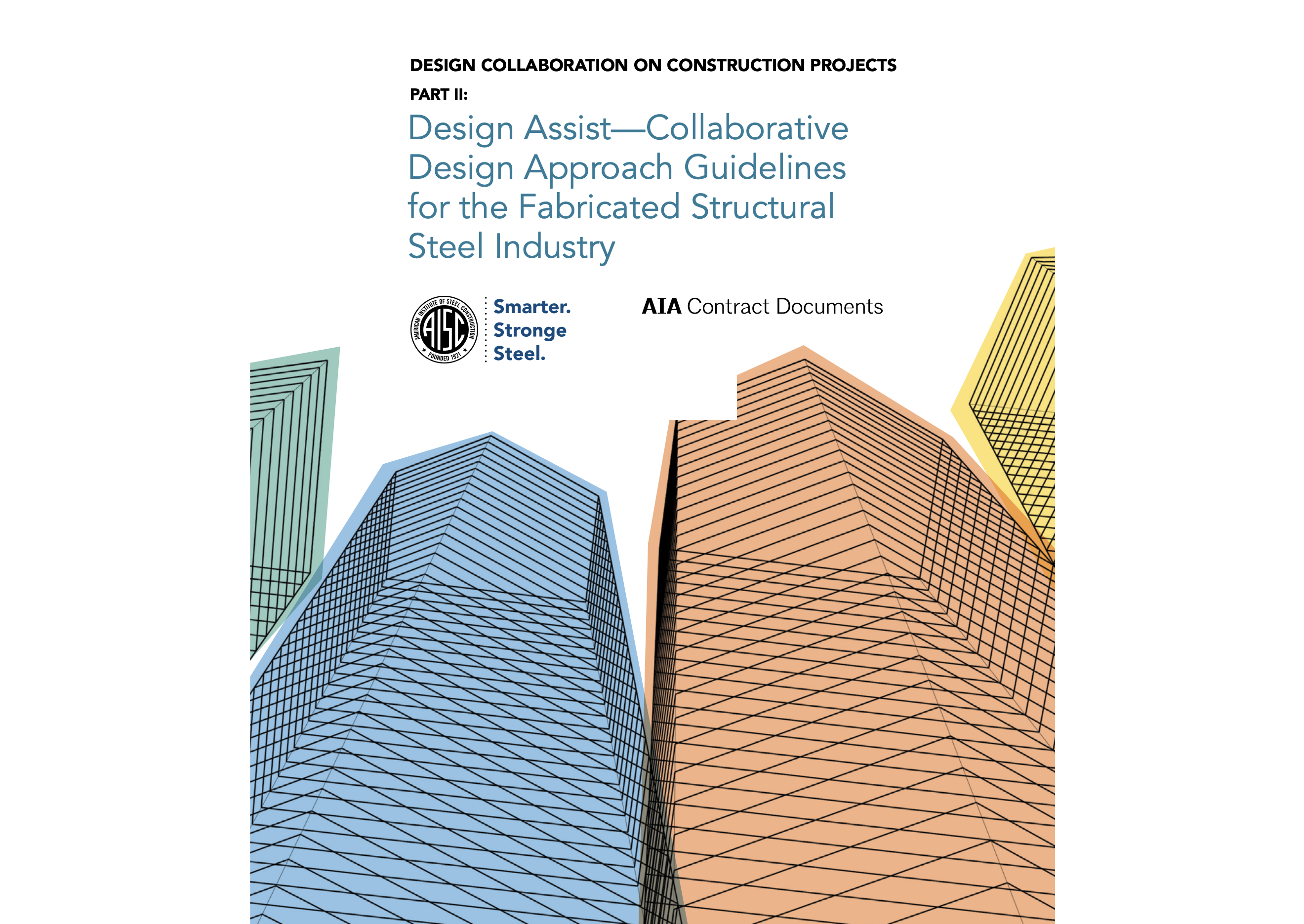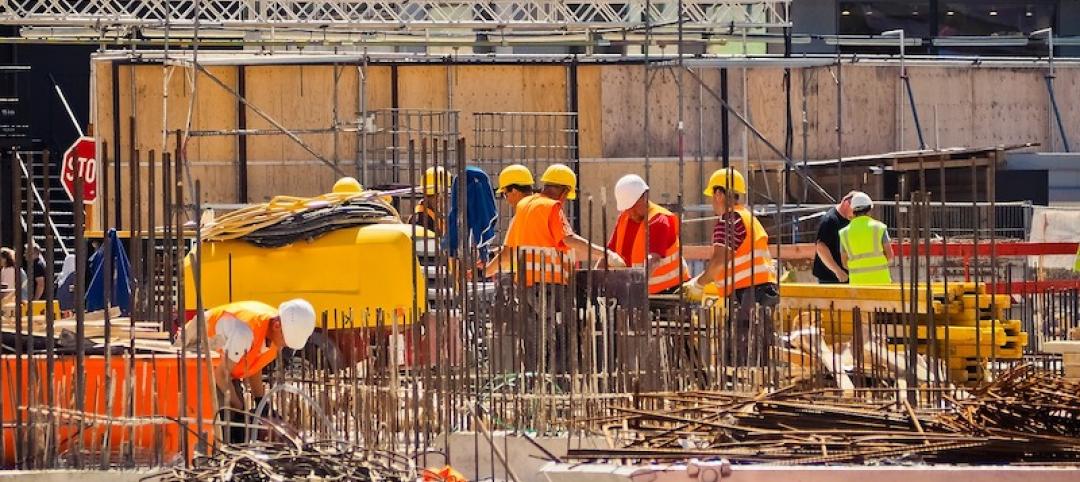The American Institute of Steel Construction and AIA Contract Documents have released the second part of a document intended to provide guidance for three common collaboration strategies.
The document, Design Assist: Collaborative Design Approach Guidelines for the Fabricated Structural Steel Industry, is a follow-up to part one, Delegated Design, Design Assist, and Informal Involvement: What does it all mean?
The strategies covered are informal involvement, design assist, and delegated design. Part II focuses on the implementation of design assist in the fabricated structural steel industry. The document describes the roles and responsibilities of various project participants and provides general guidelines about applying those strategies to fabricated structural steel projects.
“Great teams drive great projects—and great teams rely on clear communication,” said Babette Freund, vice president of special projects, Dave Steel Company, Inc., and chair of AISC’s Code of Standard Practice Committee. “This paper aims to help project teams use design assist strategies to meet a defined project schedule and budget while minimizing the costs and disruptions that might arise from team misalignments.”
How AISC defines design assist for the structural steel industry
According to the guidelines, design assist is, "A form of collaboration where a structural steel fabricator and/or erector (or a fabricator/erector team under one contract, depending on project circumstances) provides information under a contract with the owner or other party as designated by the owner, to assist a structural engineer of record (SER) and other designated members of the design assist team with the design of the structural steel for buildings or building-like structures."
Related Stories
Codes and Standards | Jan 3, 2020
Labor supply and capability of workers worry contractors
Three out of four firms plan to add workers in 2020.
Codes and Standards | Jan 3, 2020
Car-free streets could become common in major cities
New York and San Francisco establish thoroughfares dedicated to transit, pedestrians.
Codes and Standards | Jan 2, 2020
CRE professionals have increased interest in embodied carbon accounting, smart buildings
Survey also shows that interest in resiliency lags behind.
Codes and Standards | Jan 2, 2020
White paper focuses on Metal Composite Material labeling
Document part of effort to uphold industry standards for the product.
Codes and Standards | Dec 18, 2019
Hard Rock Hotel collapse in New Orleans puts spotlight on undocumented workers
Having helped rebuild the city after Hurricane Katrina, many under threat of deportation.
Codes and Standards | Dec 18, 2019
Maryland lawmakers take on blocked sidewalks during construction projects
Legislation clarifies developers’ responsibilities.
Codes and Standards | Dec 18, 2019
New York City passes legislation to prevent bird strikes on buildings
Requires bird-safe materials on first 75 feet of a structure.
Codes and Standards | Dec 16, 2019
New Buildings Institute seeks entries for Zero Buildings Database
Listing illustrates feasibility of ultra low-energy buildings.
Codes and Standards | Dec 13, 2019
USGBC launches new tool to prioritize sustainability strategies
Highlights building design features that can lead to better performance.
Codes and Standards | Dec 12, 2019
Coalition calls for consistent building data disclosure regulations in Canada
Major real estate firms are driving the effort.

















